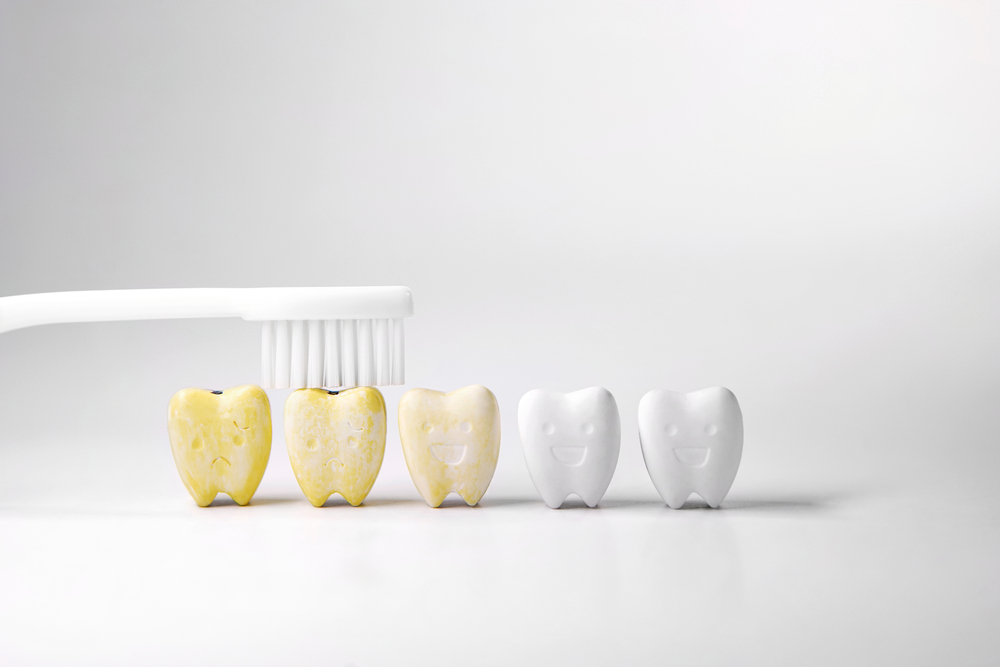If you’re a stickler for oral hygiene, you may think you’ve got it all figured out. But some dental hygiene practices can be harmful to your teeth and gums. These practices can lead to tooth decay, gum disease, and aesthetic problems like tooth discoloration due to enamel loss. That’s why it’s important to practice good dental hygiene. Here are some things you should not do to preserve the health of your teeth and gums:
Setting a low bar on brushing
It’s easy to fall into the trap of thinking that if you brush your teeth regularly, you are doing your part in dental health. However, this is not the case. Most people brush their teeth twice a day. But are you brushing long enough? The minimum time recommended for brushing is 2 minutes. Brushing less than this amount of time isn’t enough to remove all plaque from your mouth.
So, set a timer and make sure you’re brushing long enough. You can use an electric or manual toothbrush; both will get the job done effectively if you use them properly.
You should also use a toothpaste with fluoride–it helps fight cavities better than a non-fluoride toothpaste. And don’t forget about tongue brushing. Brushing your tongue helps reduce mouth odor and removes bacteria on the tongue’s surface, which could cause bad breath.
Using mouthwash that contains alcohol
Mouthwash can be harmful in certain ways. The most common problem is dry mouth, which can happen when you use an alcohol-based mouthwash. A dry mouth can cause a host of unpleasant symptoms and discomfort, including bad breath and tooth erosion. Alcohol-based mouthwash can also cause bad breath because it dries out the tongue and creates an ideal environment for bacteria to grow on your teeth’s surface.
Another risk associated with regularly using mouthwash is tooth erosion (also known as dental erosion). This occurs when acids wear away at your teeth’ enamel layer over time, leading to pain and sensitivity from hot foods or drinks touching them.
Splurging on sodas
Sodas are not the best thing for your teeth. Even if you drink them sparingly, sodas are high in sugar and can cause tooth decay. They also contain phosphoric acid, which erodes the tooth enamel that protects your teeth from decay. People who drink soda regularly are more likely to have cavities than those who don’t–so if you’re looking to improve your oral health, switch to water or other drinks instead.
Using unneeded whitening products
Although home whitening can be safe, using the wrong products or incorrectly. may harm your teeth and gums. Bleaching agents, like hydrogen peroxide, in tooth whitening products can cause gum irritation for some people.
Dentists generally recommend visiting the dentist for professional teeth whitening instead of buying an over-the-counter product. Plus, discolored teeth can occur for other reasons, like exposure to an antibiotic called tetracycline. Since the discoloration from tetracycline is deeper, tooth whitening won’t correct it.
If you decide to try a DIY teeth-whitening routine at home, get a professional opinion first: Before using an over-the-counter product on your own, speak with your dentist about whether it’s safe with the dental work you’ve done before (i.e., crowns). If you use a whitening product, choose one that your dentist has vetted and recommended. In-office tooth whitening is safer and more effective at whitening your teeth too.
Using your teeth as scissors
Have you ever seen someone use their teeth to open a package? Don’t do it! You’ll damage the enamel on your teeth, which is soft and thin in some spots. This will lead to sensitivity over time. Plus, it’s a leading cause of chipped teeth. Keep a pair of scissors handy instead.
Chewing on ice
Ice is a great way to keep your drink cold and make it more refreshing, but there are some downsides to chewing on ice. When you chew on a cube of ice, you apply pressure to the surface of your teeth. This can cause tiny cracks in the enamel and lead to sensitivity or decay. Ice can also chip your teeth if you bite into it too hard or if the ice is too large for your mouth.
Brushing your teeth too hard
Many people brush their teeth too hard without knowing it. Brushing your teeth too aggressively can damage the enamel on your teeth. Enamel is a very soft substance, and it can easily wear off if you brush too hard. It will wear down with time, but when you brush too hard, it happens faster than normal.
Brushing hard also wears down your gums and makes them thinner, which leads to gum diseases such as gingivitis. Forceful brushing can also cause your gum tissue to pull away from your teeth. Use a soft toothbrush and make sure you do not use too much pressure when brushing your teeth. If you have sensitive teeth, you may also need sensitive toothpaste.
The best way to ensure you’re taking care of your teeth is to avoid these tooth and gum-damaging habits. Many people think they can get away with brushing less often or skipping flossing if they don’t have any cavities, but that’s a big mistake. If you want to keep those pearly whites white and strong, avoid these practices.



